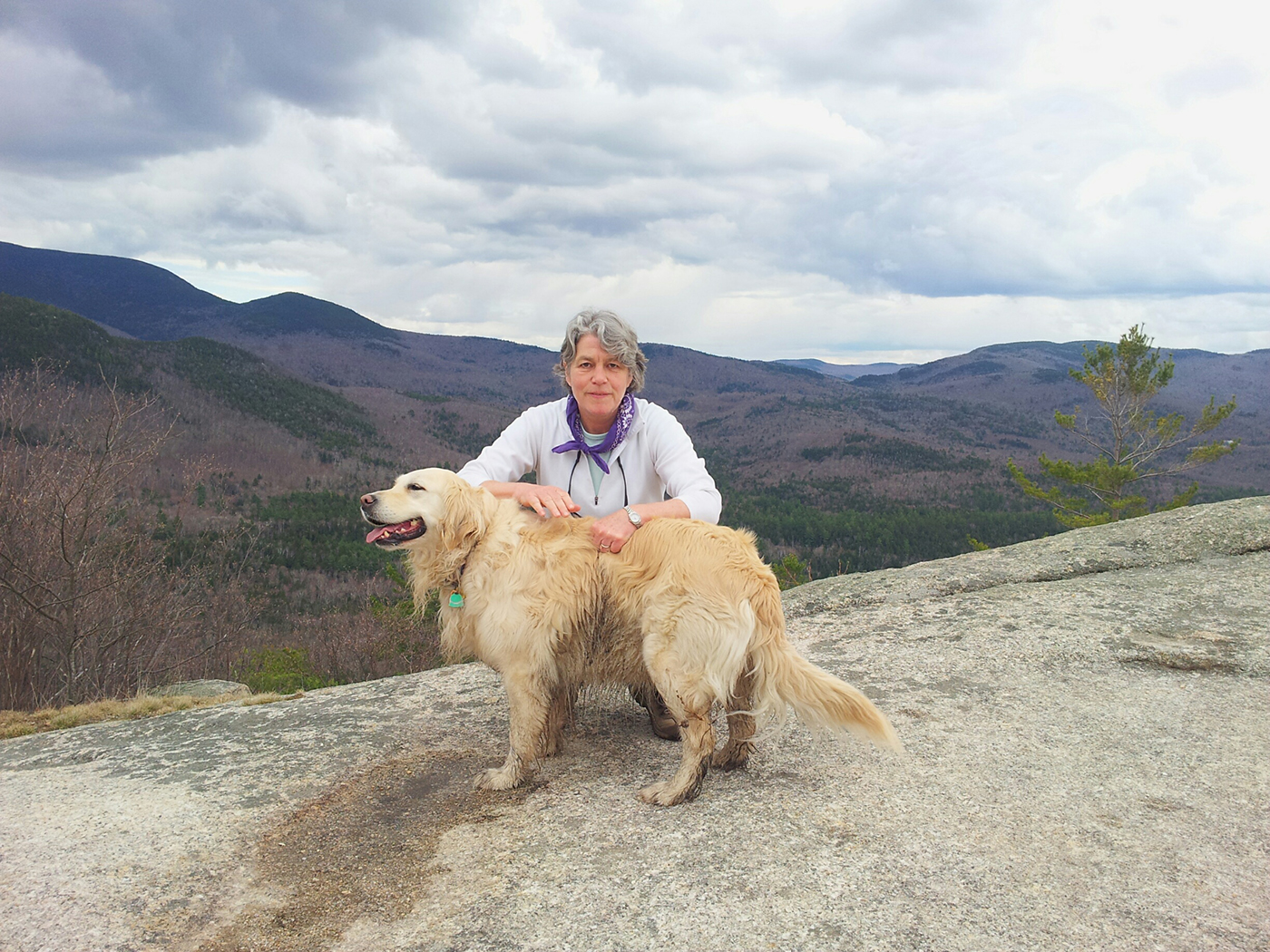

Last month, Susan Arnold was appointed Interim President and CEO of the Appalachian Mountain Club (AMC), marking the first time a woman has led the organization in its 145-year history. We talked to Susan about her history with the organization, what sets it apart from others, and what she envisions for its future.
Tell us about your roles at AMC.
So, I’ve been a part of the leadership team from the beginning of my time here. I’ve also worked across the organization in various capacities, including overseeing our Center for Outdoor Learning and Leadership, which works with youth educators and volunteers. Now, I’m serving as the interim president and CEO which is certainly an exciting challenge.
What inspires you to do this work?
I really believe in AMC’s mission and feel passionate about the conservation work that we do. I get to be a part of protecting the places we love. And I get to work closely with our team of research scientists who help inform the positions we take and steer our advocacy work. Really everyone I work with is passionate about furthering the goals of this organization, and that is so energizing.
AMC has a dual-focus mission of conservation and recreation. How do those two work together?
At the heart of our mission is protecting the places we love, which means we are committed to protecting the spaces where our members and others want to explore and play, whether that is just outside of New York City or deep in the Maine Woods. We want to ensure these special places are available for future generations to enjoy. A big part of that is providing recreational access that also respects the resource. By that I mean, for example, that creating and maintaining trails are a critical part of our conservation work. Without trails, these special places would be a mess with everyone walking all over the place. Our backcountry campsites are also there to help protect the resource, keeping people from pitching tents everywhere and trampling the landscape. For AMC, recreation and conservation work hand in hand.
What is your favorite spot to visit as an outdoor enthusiast?
I love what we’re doing up in Maine. We first bought a 300-acre traditional Maine sporting camp in 2003, and now less than 20 years later we are getting close to owning more than 100,000 acres of land, with 3 ecolodges and more than 130 miles of trails. I’ve been going up there for years and have skied from lodge to lodge. It’s an amazing experience.
I also really love the Stephen and Betsy Corman Harriman Outdoor Center (CHOC)—it’s becoming increasingly popular as Harriman State Park is just 45 minutes from NYC and accessible via public transit. We have a role to play in bringing outdoor experiences to urban areas. When you’re at CHOC, it’s so wooded and quiet—you could be in New Hampshire. It’s beautiful.
What are some of the priorities of the AMC for the future?
As an organization, we’re committed to being welcoming and are working to expand and ensure equitable access to the outdoors. That is a huge priority for me. We cover a region that spans some major metropolitan areas, as well as these very rural places, so there is a huge opportunity to realize the full spectrum of what it means to create and support equitable access to the outdoors.
Another exciting opportunity for the AMC this year is that we are getting close to adding another 27,000 acres of land known as the Pleasant River Headwaters Forest to our Maine Woods Initiative. This acquisition will bring us to over 100,000 acres of AMC protected land in Maine, which is part of a tapestry of protected lands that encompass millions of acres of forest, remote ponds, and the headwaters of two of Maine’s largest rivers. This region is a globally significant forest—a huge carbon sink for the entire East Coast and for the world, and its scale and connectivity support biodiversity in the face of a changing climate. And speaking of climate change, I’m thrilled that AMC is committed to being a net zero carbon emissions organization, and we will be rolling out our strategy to get there later this year.